Gareth Southgate’s England legacy is bigger than any trophy
The Three Lions lost a second successive final in Berlin but, as Miguel Delaney writes, Gareth Southgate leaves something greater than purely results on the pitch


Your support helps us to tell the story
From reproductive rights to climate change to Big Tech, The Independent is on the ground when the story is developing. Whether it's investigating the financials of Elon Musk's pro-Trump PAC or producing our latest documentary, 'The A Word', which shines a light on the American women fighting for reproductive rights, we know how important it is to parse out the facts from the messaging.
At such a critical moment in US history, we need reporters on the ground. Your donation allows us to keep sending journalists to speak to both sides of the story.
The Independent is trusted by Americans across the entire political spectrum. And unlike many other quality news outlets, we choose not to lock Americans out of our reporting and analysis with paywalls. We believe quality journalism should be available to everyone, paid for by those who can afford it.
Your support makes all the difference.A gentleman to his core, Gareth Southgate has always been willing to stop and speak, which was why it was so striking that he walked right out of Berlin’s Olympiastadion on Sunday without wishing to add any more to his official post-final press conference. He didn’t want to have to talk publicly about a decision he had already made. Southgate didn’t even need the few days he’d requested. He knew. The players, disappointed but understanding, also knew.
There was of course the temptation to give it just one more tournament since England were again so close. This final brought an 86th-minute Spanish winner, following penalties in Euro 2020. And yet that temptation was barely considered. The closeness only served to show how far away Southgate felt he really was.
He said on the eve of the Euro 2024 final that he wanted to “win so much” that “it hurts”, and he will now have to live with that pain. It is particularly acute given he almost had that trophy in his hands.
And yet, in time, Southgate should find considerable solace that he brought joy back to England. That’s to the play, to the games, to the tournaments, to just the atmosphere around the team. This period has impacted the country’s culture, from waistcoats to the songs.
That is much more important than the fact he is statistically England’s best modern manager and the most successful after Sir Alf Ramsey. He restored respectability to the country’s international record, by returning them to finals for the only time outside 1966.
The progress was to reach these games which became proper events, where people could be proud of their team again.
He gave joy. He also gave the next manager the platform to bring the jubilation of a trophy.
This also goes much deeper than just leaving a talented squad that has been in two finals.
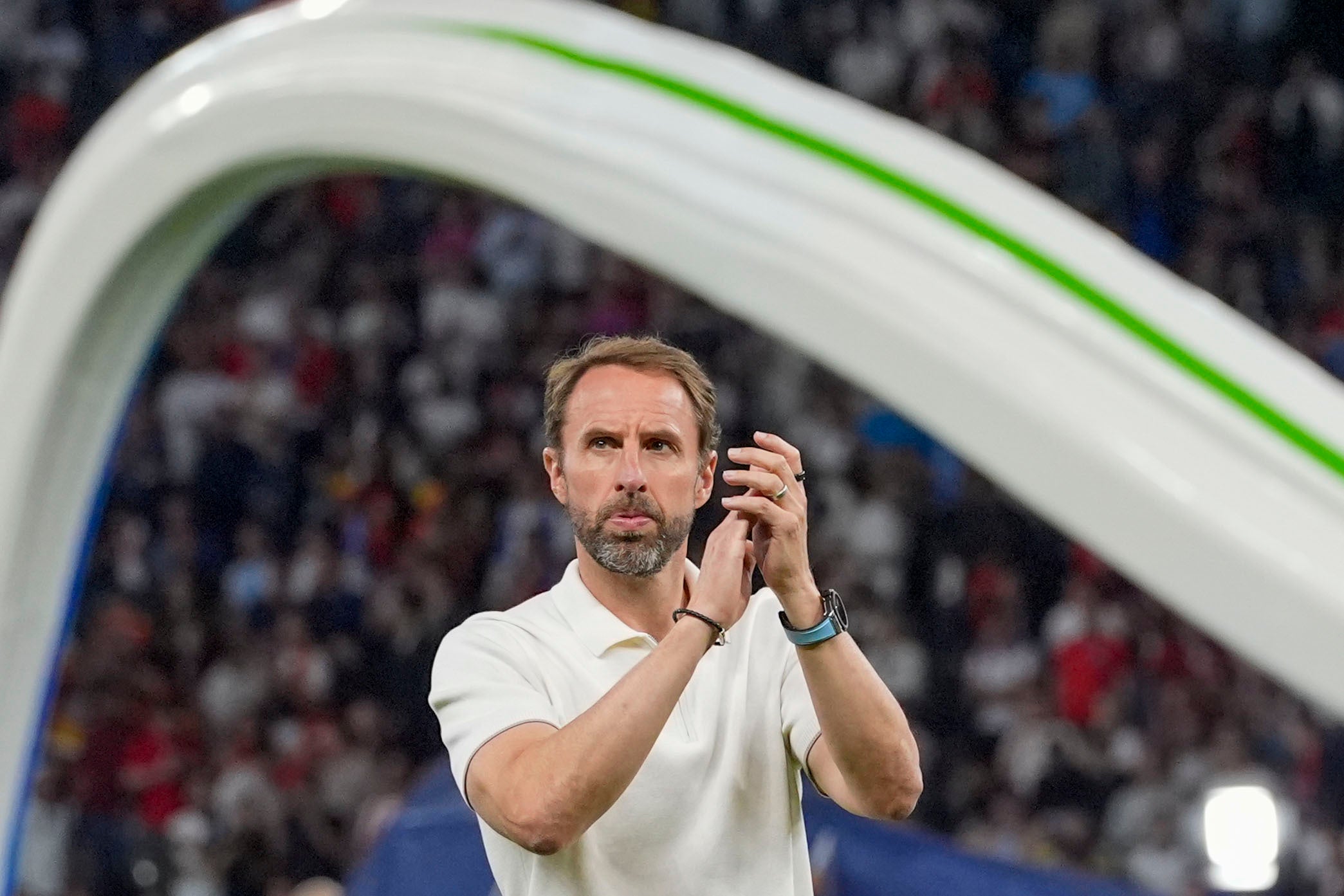
The most uncharitable criticism of Southgate is that he has wasted a superb generation of talent. While it is true that his football may not ultimately be the best fit, there was much more to what he did than just imposing tactics on the team.
The 2018 squad that reached England’s first semi-final in 22 years was not filled with the quality of 2020-24. It barely had a midfield. It was canny management, and clever capitalisation of tournament luck, to get them that far. The real talent only started to come in the years after, and it tracks with even earlier work that Southgate had done. He was central to the 2013 launch of “England DNA”, which was about providing clear pathways from the underage teams to the seniors.
The current squad came through this but, after that, Southgate gave them the perfect environment to arrive into. His England wasn’t the ego-driven split dressing room that their predecessors had faced.
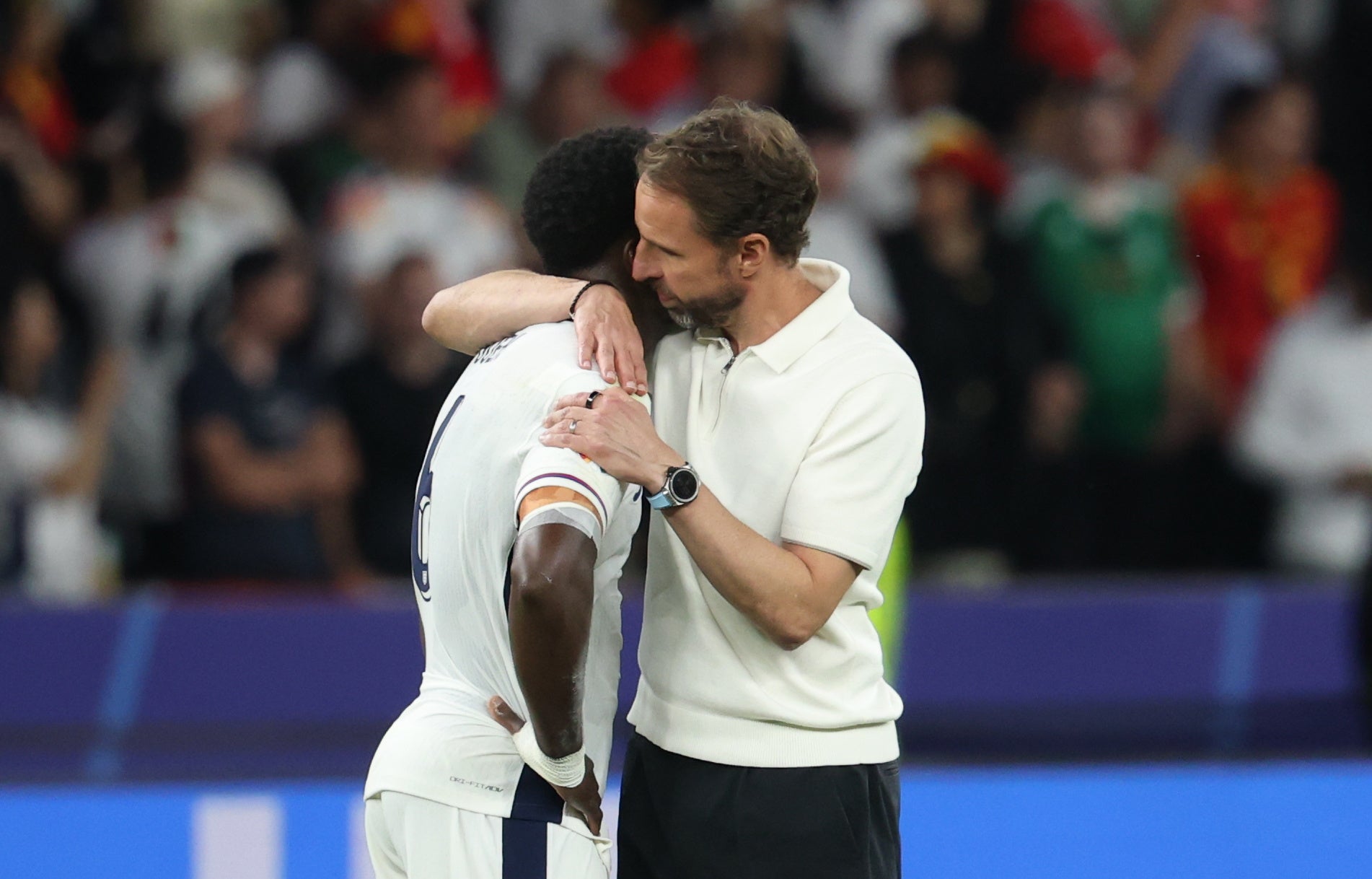
So, he remade the culture that produces players and then remade the culture of their team. England, fitting with a theme, became a joy for the players to join up with again. They looked forward to it. It is arguably only Southgate that could have been responsible for that.
He is rare among football figures in having that holistic perspective but also the experience of being a senior player in major tournaments, one who really went through it. His main objective, after almost accidentally taking the job in 2016, was to directly tackle this. A military camp was organised as a bonding exercise but also to assess players psychologically: who led, who followed. The idea was to start helping England think clearly under pressure, something that had been a major problem. Work immediately began on penalties.
The benefits were first seen in 2018, and that watershed victory over Colombia in a shootout. It was one of many limits that Southgate forced England through: a first semi-final in decades as well as a first outside England; big wins away from home over countries like Spain and Italy before bigger wins in knockout football against a team like Germany. Then, of course, a final.
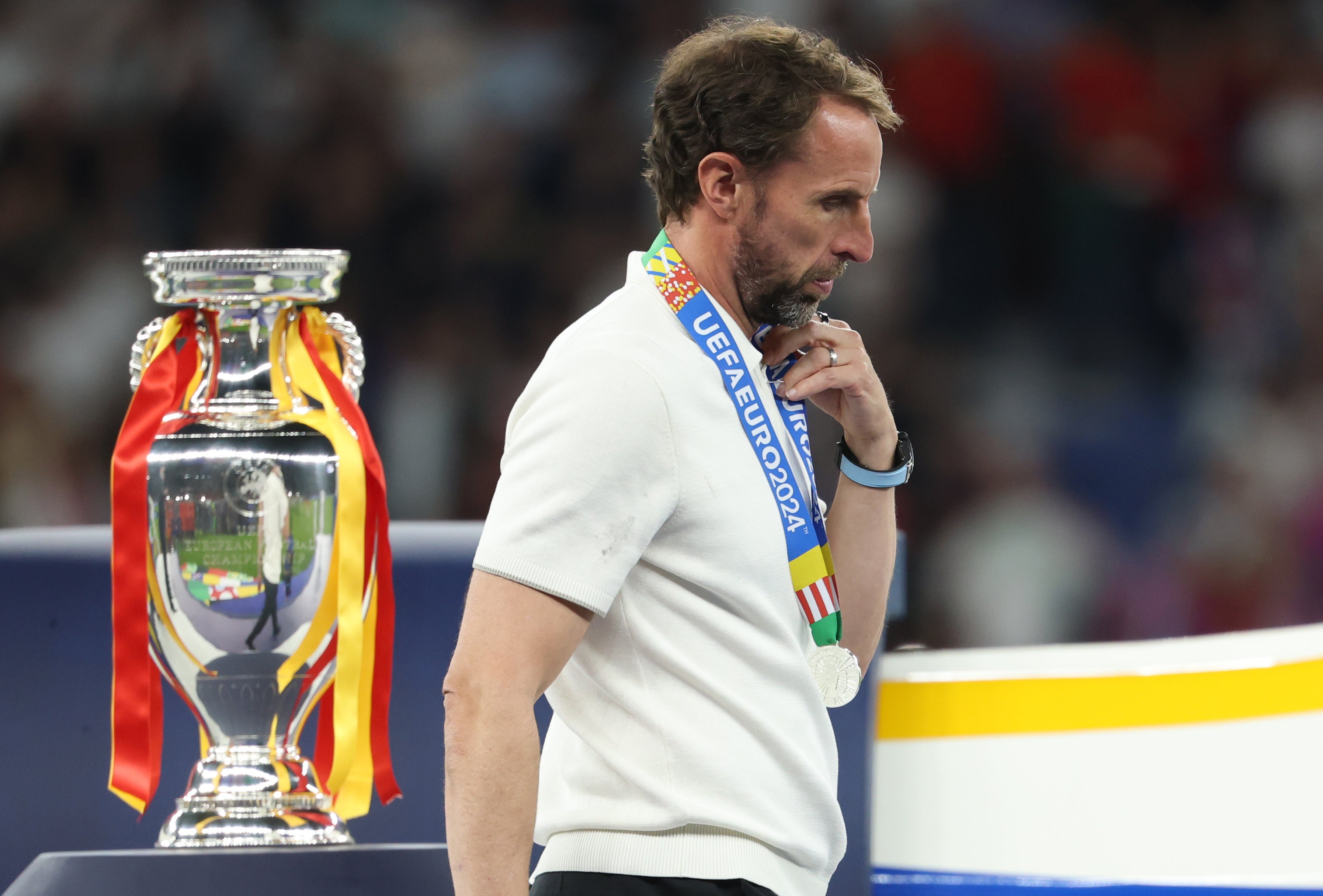
All of this came from the resolve that Southgate instilled in the team through those early years, a spirit that was only strengthened through his response to major crises.
He didn’t just crash the team through barriers, he also expanded the parameters of the job. Southgate was as much a figurehead for English football as a manager, speaking on everything from racism and migration to the state of the nation, as well as social issues.
While it would later feel like this became a burden for him, especially with a reluctance to get into wider issues around Qatar, it brought huge loyalty from the players. They felt the manager had their back.
It also brought new criticism. A section of the fanbase never forgave him for taking the knee, an immensely powerful image supporting his players that was sadly soundtracked by boos.
It informed some of the more intense responses to bad results, not least the outcome of Euro 2020.
If 2018 was a watershed for the national team’s history, July 2021 was the hinge moment of Southgate’s time in the job.
It was also when the criticism grew, and some of the purely football complaints became fairer.
There was a danger of Southgate getting stuck in 2018. His entire tournament approach had been based on the study of what won that era’s competitions, with France’s World Cup victory that year standing out. A “bible” was assembled, which offered data on everything from the best way to take penalties and time to make subs. It just evolved into management by handbook.
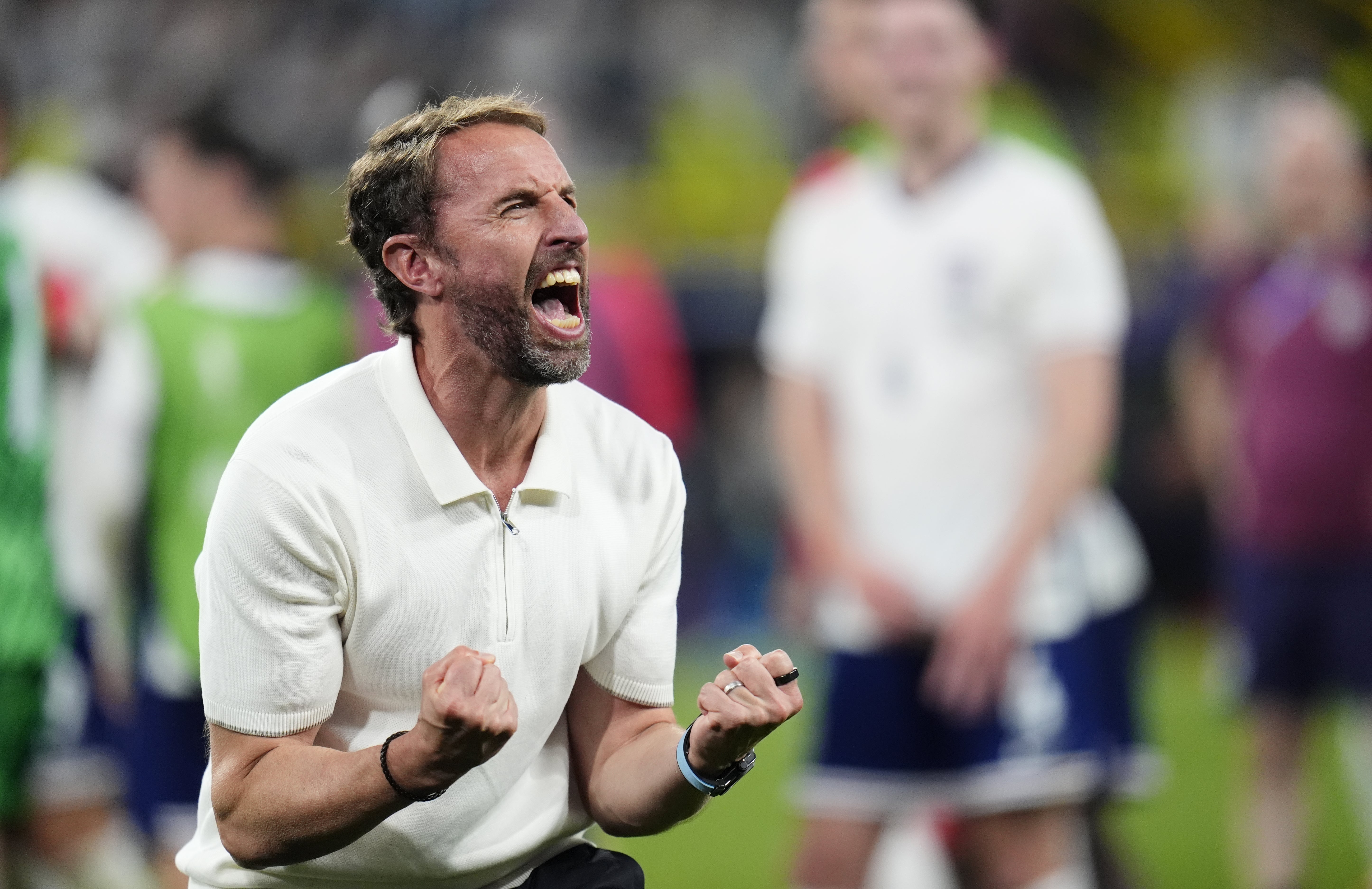
A sense grew of Southgate and his staff tackling every possible element except the crucial part at the centre. The line was repeatedly stated that he was “good at everything but the football”.
Other international camps privately felt that he didn’t have the finer tactical appreciation that made champions. This stood alongside criticism that he just isn’t “a winner”.
Whatever the truth, England never broke the last limit, which was actually winning finals. They also kept failing in the same way. They didn’t have control of games against proper contenders. Southgate’s system wasn’t as sophisticated. It ironically forced England’s best attackers, now coming through in abundance, to play within their limits. European champions like Italy and Spain, in contrast, amplified the quality of their players.
This last campaign almost summed it up. England practically kept playing out the same match until they faced a team that had much more ability than the Netherlands or Switzerland.
It didn’t help that Southgate never had a clear idea of the squad or the team, something that was such a contrast from his first three tournaments.
Such problems are also probably an inevitable result of staying in the job this long. Southgate himself has raised how it’s rare that international managers go past eight years. A danger of staleness starts to clash with more challenging attempts to stave off staleness. This probably explains the confusing and lopsided nature of Southgate’s Euro 2024 squad. It happened to Joachim Low. It happened to Vicente Del Bosque. It’s now happening to Didier Deschamps.
Southgate has taken the decision to ensure it won’t happen for him, although that phrase has multiple meanings.
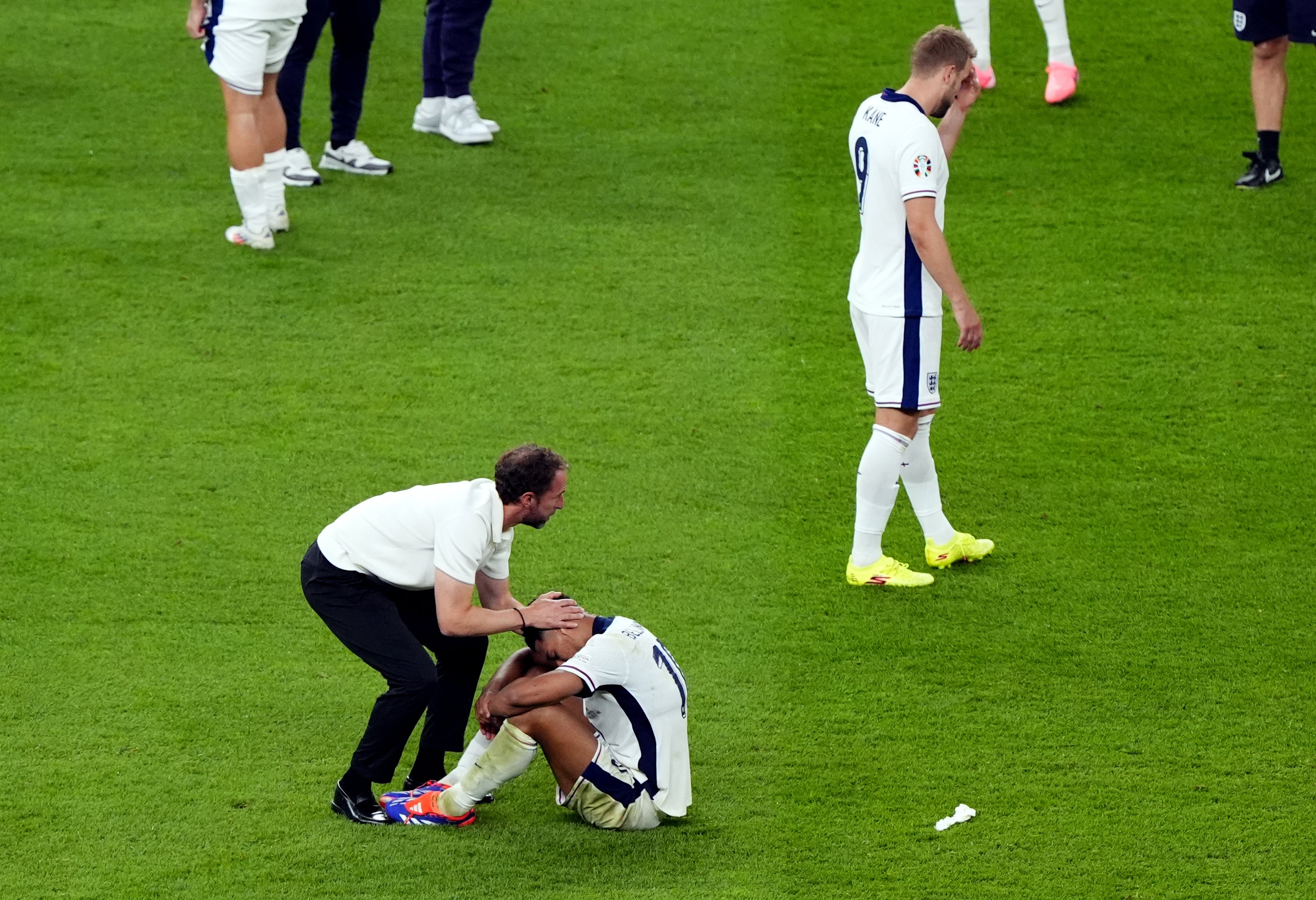
He won’t get that trophy he so desired. He might just be crucial in the country eventually getting it.
His personal pain could yet be a direct factor in England finally experiencing the ultimate joy.
If so, this group of players will make a point of thanking him. They all like him. They all credit him for developing their careers.
That maybe says more than anything he ever did to the media.



Join our commenting forum
Join thought-provoking conversations, follow other Independent readers and see their replies
Comments